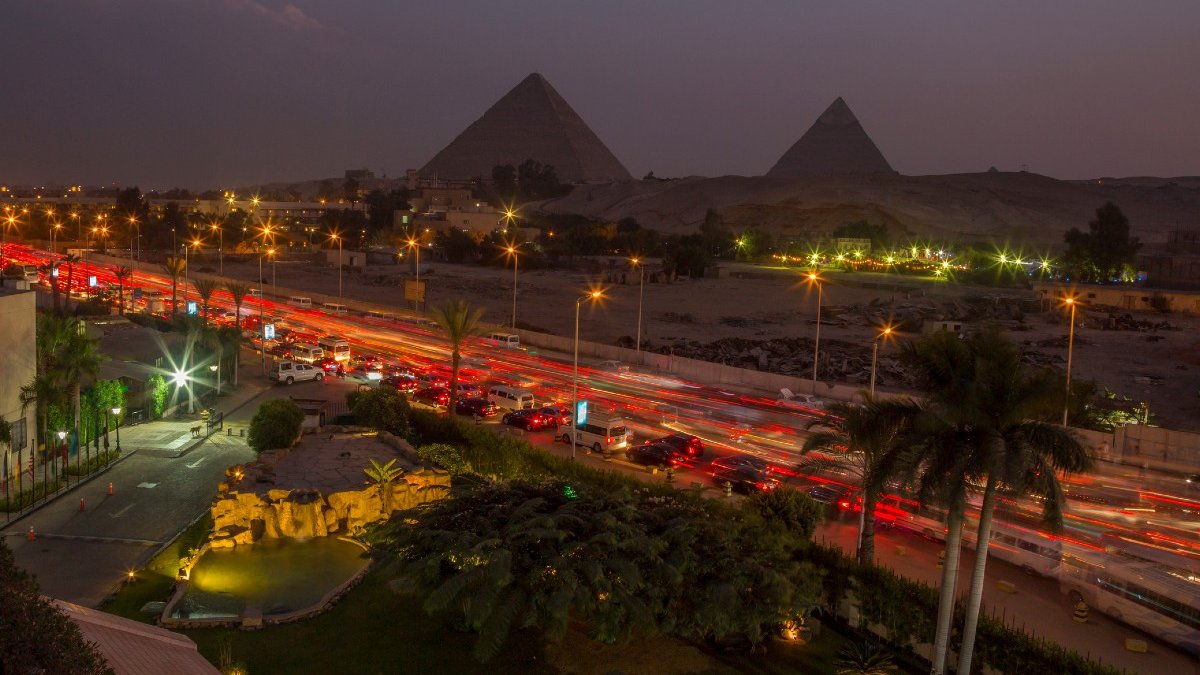Researchers identify path for Cairo to reduce carbon emissions while making people healthier
To help authorities improve air quality in Cairo, scientists from the University of Surrey in England and the American University in Cairo in Egypt have published research in the peer-reviewed Toxics journal to predict how various measures will impact emissions.
With air pollution being one of the top five risk factors for disease and premature death in Egypt and the cause of an estimated 10 per cent of premature deaths, the findings could save many lives.
Greater Cairo is the sixth largest city in the world, according to the UN, with a population of over 20 million. Its roads are used by 4 million vehicles, 60 per cent of which are more than ten years old. The study uses local data and international case studies to predict the impact of various transport emission control measures, with the aim of proposing ways to protect the health of the local population, improve air quality and cut carbon emissions.
The team benchmarked levels of toxin, pollutant and global warming emissions and looked at congestion levels in order to project emission levels in 2030 if no mitigating actions were adopted to tackle the transport pollution problem. They compared the results with five other scenarios, chosen based on local agendas and international best practice, including fuel subsidy removal, road expansions, public transport improvements, vehicle inspection and maintenance programmes, and fuel enhancements.
They found that, in reference to the specific conditions of Greater Cairo, better inspection and maintenance of vehicles would be most effective at reducing health-damaging pollutants, with a predicted reduction of at least 35 per cent and possibly up to 55 per cent compared with doing nothing. Similarly, fuel enhancements would cut some health-damaging pollutants, with the potential of reducing sulphur oxide emissions by as much as 91 per cent. Improving the public transport infrastructure would reduce all types of emissions by nearly a third, but building more roads would most likely lead to a 37 per cent increase in emissions on the long run compared with doing nothing as it would induce more traffic.

Prashant and his colleagues at GCARE are helping Cairo's 20 million citizens combat air pollution
Currently, Egypt is rightly implementing a fuel subsidy removal plan that aims to reduce congestion and in turn traffic emissions. This study has shown that fuel subsidy removal greatly reduces global warming emission (especially CO2) by an average of 12.4 per cent compared to not implementing such plans. Also, public transport improvements are underway with the aim of reducing car reliance by offering reliable mass transport options. The study found that public transport improvements would reduce global warming emissions produced by cars by around 34 per cent in 2030 compared to doing nothing.
This research, led by Surrey’s Global Centre for Clean Air Research (GCARE), builds on previous studies which showed the high levels of pollution to which Cairo drivers are exposed.
Professor Prashant Kumar, senior author of the article, Associate Dean (International) for the Faculty of Engineering and Physical Sciences at the University of Surrey, and the Founding Director of the GCARE, said:
“The input data for emission modelling for cities such as Cairo are not abundantly available and many challenges need overcoming. Our emission modelling approach, using the International Vehicle Emissions modelling tool, shows how best to protect the people of Cairo. And how not to. A road expansion plan would encourage vehicle ownership and thus induce traffic, exposing more people to the risks of premature death caused by high pollution levels. In contrast, improvements to public transport would not only offer health and environmental benefits, but also potential quality-of-life benefits by cutting congestion and improving commuters’ lifestyles.”
Rana Alaa Abbass, PhD student at the GCARE, said:
“Egypt has introduced many measures to tackle pollution and emissions with some excellent plans under implementation. Greater Cairo desperately needs such measures. A large-scale, centralised inspection and maintenance programme, properly organised and enforced, would make a real difference to people’s health. This study also identifies effective ways to help the city cut its carbon emissions.”
___
Read the full article: https://doi.org/10.3390/toxics9110285
Media Contacts
External Communications and PR team
Phone: +44 (0)1483 684380 / 688914 / 684378
Email: mediarelations@surrey.ac.uk
Out of hours: +44 (0)7773 479911



